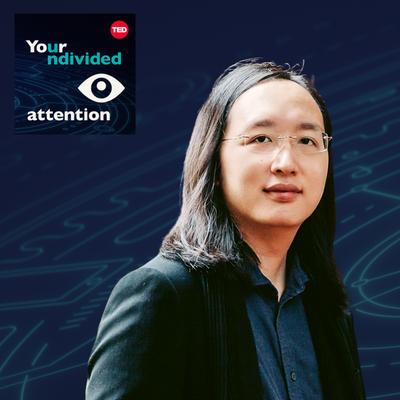Episode 44 | Dec 10, 2021
A Fresh Take on Tech in China with Rui Ma and Duncan Clark
Who do you think the Chinese government considers its biggest rival? The United States, right? Actually, the Chinese government considers its biggest rival to be its own technology companies.
It's China's tech companies who threaten its capacity to build a competitive China. That's why the Chinese government is cracking down on social media — for example, by limiting the number of hours youth can play video games, and banning cell phone use in schools. China's restrictions on social media use may be autocratic, but may also protect users more than what we see coming from the US government.
It’s a complicated picture.
This week on Your Undivided Attention, we're having a surprising conversation about technology in China. Here to give us a fresh take are two guests: investor, analyst, and co-host of the Tech Buzz China podcast Rui Ma, and China internet expert and author of Alibaba: The House That Jack Ma Built Duncan Clark.
Major Takeaways
China is much more digitized than the US. People fulfill almost all of their needs with their phones, from paying utility bills to using public transit. When Duncan leaves China, he feels like he’s traveling back in time.
Chinese people embrace digital technology in their lives. They associate digital tech with positive change, like the transition out of poverty.
Instead of different apps for different purposes, WeChat is somewhat of an all-encompassing “super-app” in China. It also has a better user experience due to its business model — a smaller group of users (mostly teens) pay for games, which subsidizes a better user experience for everyone.
The Chinese government considers its biggest threat to be, not the United States, but its own technology companies.
For this reason, the Chinese government cracking down on social media in various ways, such as:
~Limiting the number of hours youth can play video games
~Banning all cell phone use in schools
~Banning the use of China’s version of TikTok (Douyin) between 10pm-6am
~Requiring Chinese military personnel to register their phones with their commanding unit, tracking them remotely, and making certain websites off-limits
~Requiring face scans for all mobile users, and generally discouraging anonymity online
~Manipulating social media content, including boosting educational videos for youth, banning specific celebrities and celebrity fan sites, and boosting content that supports the Chinese government
The Chinese government is proud of the way it’s taking on Big Tech, and Chinese citizens expect their government to do that. In both of these respects, China sits in stark contrast to the US.
Here are some frames we might use to contrast technology in China vs. the US:
~Two attractors — two states that societies naturally gravitate towards. The two attractors are oppression and chaos. Oppression is characterized by China's model of digital authoritarianism, where the state uses its power to limit the freedom of citizens, while chaos is characterized by regulatory failure in the West, where the state often fails to be an effective check on the market.
~Bowling alley — since the two attractors have gravitational pull, it’s almost as if they’re the two gutters in a bowling alley, and we’re trying to hit a strike.
~Digital Open Societies vs. Digital Closed Societies — a strike would be a Digital Open Society, a society that uses digital technology in order to strengthen democracy. This is in contrast to Digital Closed Societies like China, which use digital technology to strengthen the power of the state.
According to Rui Ma and Duncan Clark, China and the US need each other more than we care to admit. The two countries are also collaborating more than we think.
Other recommended reading
Alibaba: The House That Jack Ma Built
Duncan Clark's book about how a Chinese teacher built one of the world's most valuable companies and reshaped the global economy
Tech Buzz China podcast
The biweekly podcast co-hosted by Rui Ma, which covers China tech news and innovations
In China, Kids Are Limited To Playing Video Games For Only 3 Hours Per Week
NPR segment on China's crackdown on video games for youth

